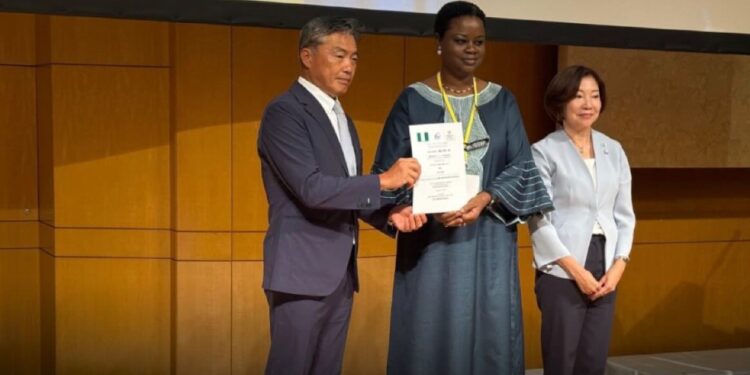The Japanese government has officially designated Kisarazu City as the hometown for Nigerians willing to live and work in Japan, as part of a strategic initiative to strengthen bilateral relations and enhance workforce productivity.
The announcement was made on the sidelines of the 9th Tokyo International Conference on African Development (TICAD9), where Japan outlined new measures aimed at deepening cultural diplomacy, promoting economic growth, and fostering manpower development between Japan and African nations.
Under this partnership, Japan will introduce a special visa category for highly skilled, innovative, and talented young Nigerians who wish to relocate to Kisarazu for work and residence.
Additionally, artisans and other blue-collar workers from Nigeria who are ready to upskill will also benefit from the special dispensation visa scheme.
Speaking during the ceremony, Nigeria’s Charge d’Affaires and Acting Ambassador to Japan, Mrs. Florence Akinyemi Adeseke, alongside Yoshikuni Watanabe, the Mayor of Kisarazu, received a certificate officially naming Kisarazu the hometown of Nigerians.
The arrangement also extends to three other African nations—Tanzania, Ghana, and Mozambique—whose citizens will have similar opportunities in designated Japanese cities.
The Japan International Cooperation Agency named Nagai in Yamagata Prefecture as the hometown for Tanzania, Sanjo in Niigata Prefecture for Ghana, and Imabari in Ehime Prefecture for Mozambique.
Japan’s Prime Minister, Shigeru Ishiba, in his address at TICAD9, announced $5.5 billion in new investment for Africa and emphasized mutual understanding, local solutions, and collaborative efforts for sustainable development.
He noted Japan’s commitment to private sector-led growth, youth and women empowerment, and regional integration.
Kisarazu holds historical significance as the official host town of Nigeria’s contingent during the Tokyo 2020 Olympic Games, where the Nigerian team conducted pre-games training camps and acclimatization.
According to Japanese authorities, this partnership is expected to create two-way economic and cultural exchanges, add value to human capital development, and contribute to regional revitalization efforts in both nations.









